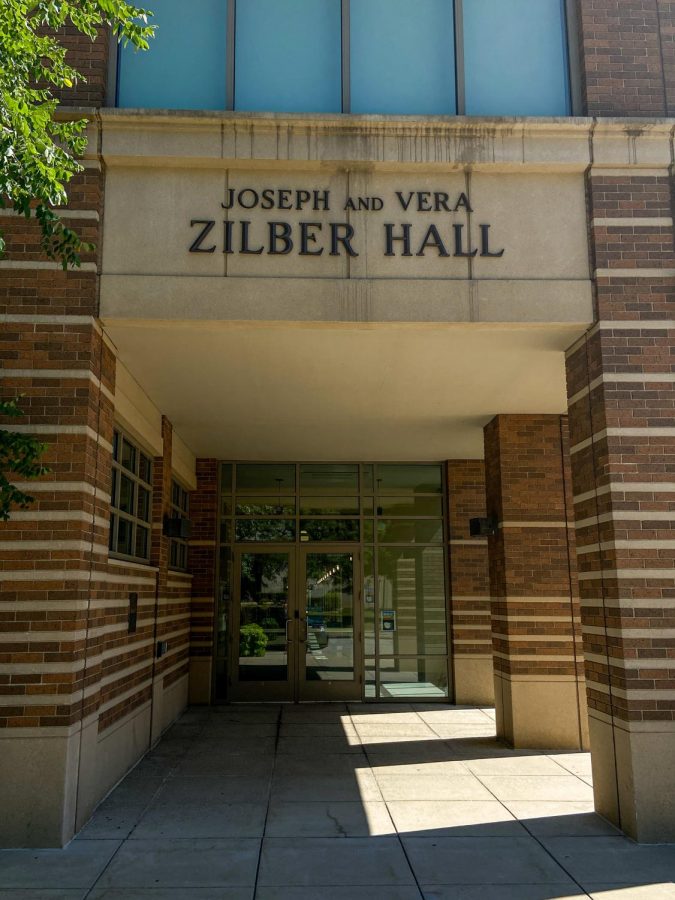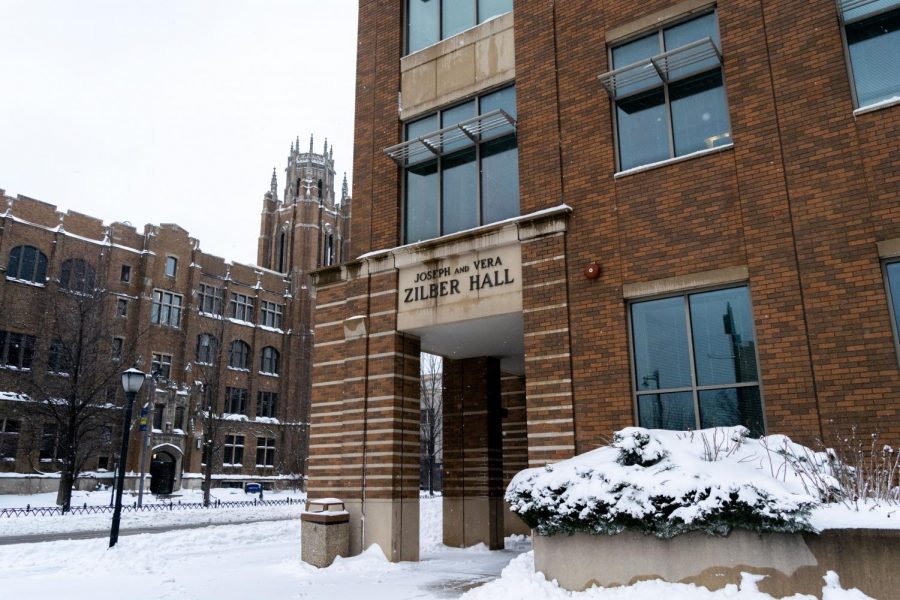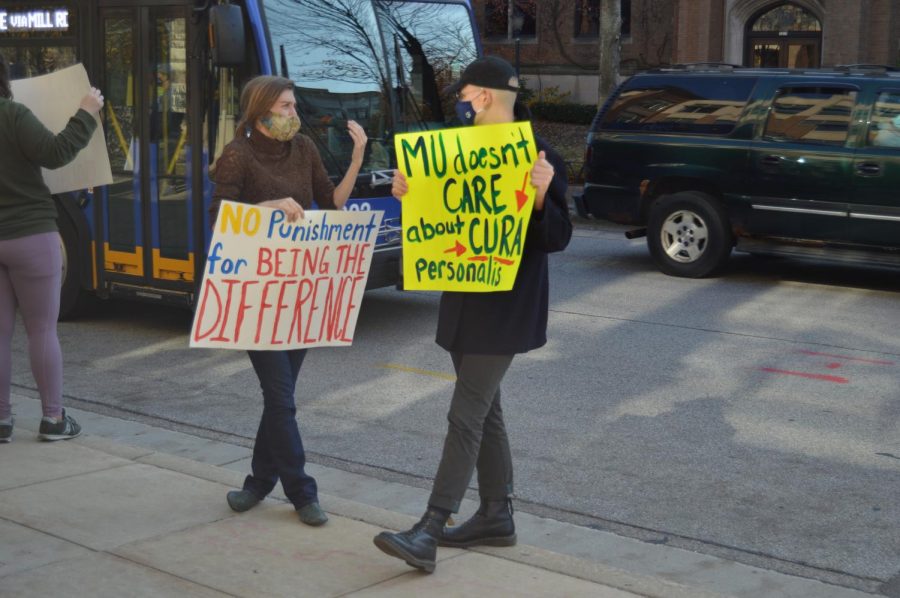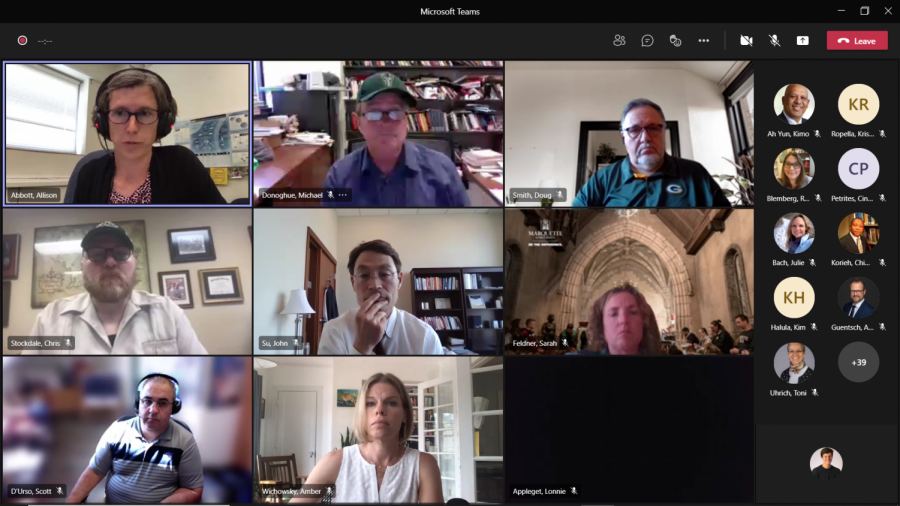The University Academic Senate wants to improve shared governance between faculty and administration surrounding university operations.
Shared governance, in this case, would be a partnership between faculty and administration that ensures multiple parties are involved in major decision making that would affect the academic experience at Marquette.
Allison Abbott is an associate professor of biological sciences and chair of UAS. She stated some goals of UAS this year, which include “improving shared governance in university financial planning, advancing the participating faculty experience and promoting diversity, equity and inclusion.”
The proposed University Budget and Financial Planning Committee looks to help accomplish that goal.
“Each Academic year, the committee shall review, prior to its adoption by the Board of Trustees, the budget proposed by the administration for the following fiscal year,” the proposal states.
The proposal would develop a committee of UAS members to provide a faculty perspective on budgeting and university financial plans.
“Shared governance improves communication, collegiality and decision making about the academic mission and effective and efficient use of university resources … ” Abbott said at the Aug. 30 UAS meeting.
The committee would be comprised of a faculty representative from each college, one representative from the full-time participating faculty librarians, one faculty member who serves on the University Financial Planning and Review Committee and the vice president for finance, or another representative from the office of finance.
“Faculty council got involved in this advisory process after the financial challenges of last year,” Jeffrey Berry, chair of the faculty council and associate professor of speech pathology and audiology, said at the meeting.
This proposal comes after a year-long battle between faculty and other members of the Marquette community surrounding university finances and COVID-19 relief funds.
Last year, Marquette did not renew a “single digit percentage” of contracts for nontenure-track faculty. This was a move that Provost Kimo Ah Yun said saved the university $1.6 million. University officials never released an exact number.
Marquette also eliminated 39 positions in January as a result of short- and long-term financial challenges.
However, the university received $6.4 million in institutional relief from the Coronavirus Aid, Relief, and Economic Security Act and another $17.3 million from the American Rescue Act. A portion of the $17.3 million was reserved for student grants.
Many faculty felt that they were not being adequately consulted about the use of stimulus funds or the Fiscal Year 2022 budget in general, which resulted in a series of actions from on-campus groups who expressed their displeasure with the university.
Our Marquette, a group of tenured and tenure track faculty, issued a statement condemning the cuts back in January. The Marquette Academic Workers Union held on-campus protests and Marquette’s chapter of American Association of University Professors published a statement in the Marquette Tribune last semester that called for a reset of the current shared governance principles. None of these organizations are officially recognized by the university.
After all the challenges of last year, Ah Yun issued an apology to those at the UAS meeting.
“On behalf of my office and what I’ve done, I want to make sure I apologize to this community for any actions I took that created pain. Thank you for the grace that you’ve given me,” Ah Yun said.
Other responsibilities of the proposed committee include identifying budget and financial issues for review.
These could include, ” … University financial performance and financial statements for the past fiscal year, projected financial performance in current fiscal year, external information on the University’s finances (e.g., credit rating agency reviews),” as well as challenges related to financial planning.
The committee would then be expected to report their findings to both the UAS and the University Financial Planning and Review Committee. The proposed committee would also be allowed to offer advice directly to either the provost or president and additionally would respond to requests from them.
The committee would be chaired by an elected tenured faculty member and meet monthly. An annual report would also be delivered to UAS.
The UAS will vote on the committee at their next meeting Sept. 20. The committee will take time to form if it is approved. This means that they will most likely not partake in any decisions surrounding FY23, as planning is already underway.
This story was written by Megan Woolard. She can be reached at megan.woolard@marquette.edu










